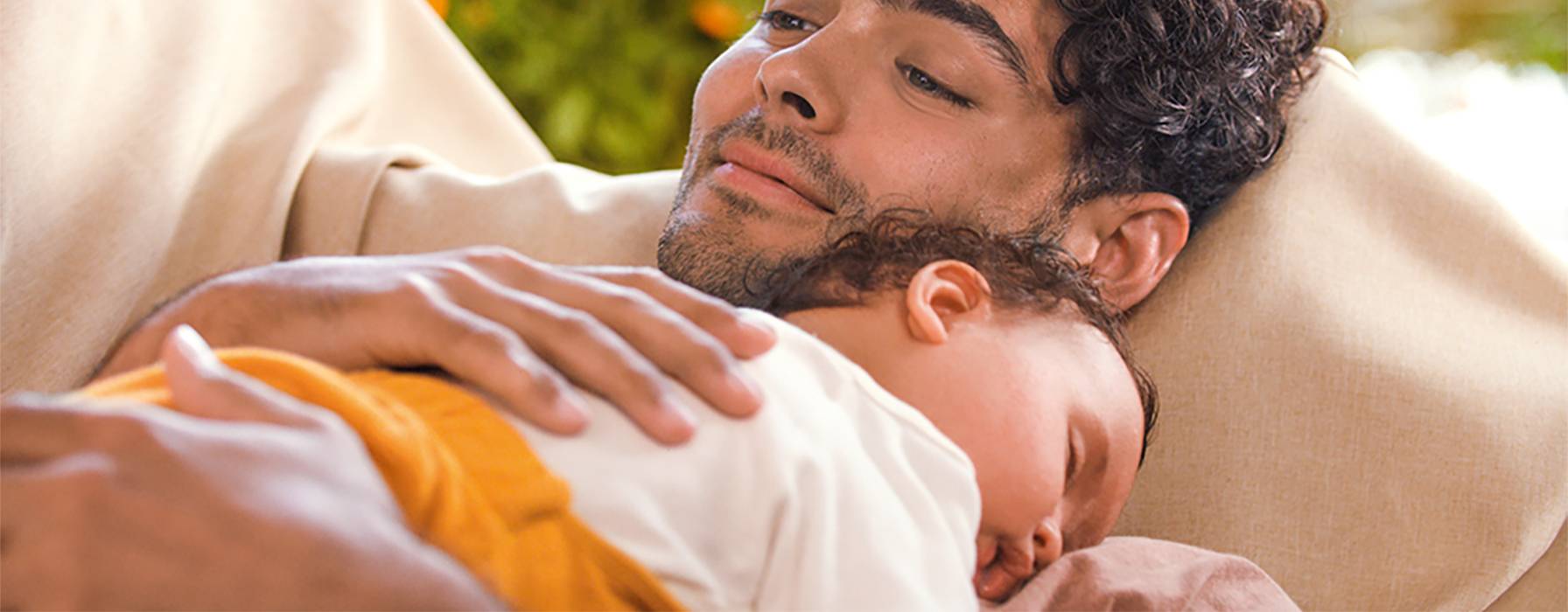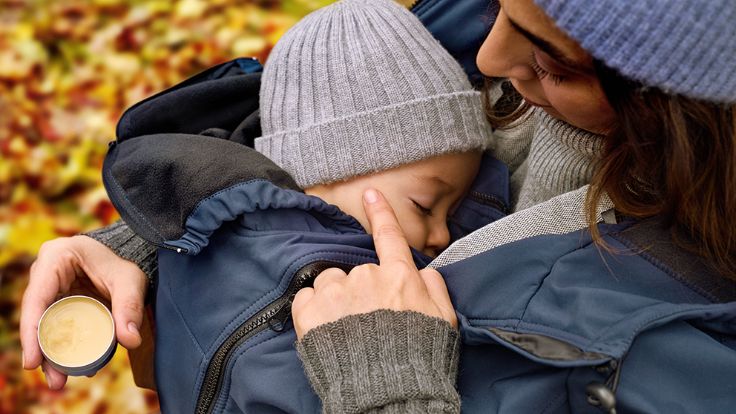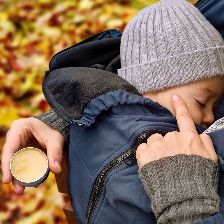
Teething babies – sleepless nights, tired parents
Tips for baby’s first teeth
When babies cut their first teeth, it’s a small milestone. You’ve probably already noticed signs of the first incisors emerging along the lower gum line. Parents often interpret any restlessness in their baby during this time as an announcement that they will cut their first tooth. The last teeth to come are the molars, which can be more painful than the others. While some babies may suddenly flash their first teeth without a fuss, others may feel great discomfort – making it a challenging time for parents.
When do babies start teething?
The emergence of a baby’s first teeth marks an important developmental stage. Most babies cut their first teeth at around 6 months, but the exact time varies. The 20 baby teeth already begin to form during pregnancy, and emerge through the gums entirely in the first 2 to 3 years. They often come one after the other with about a month in between, but sometimes they erupt simultaneously. The two lower incisors usually appear first in the baby’s mouth.
Teething time – from restlessness to sleepless nights
Every child reacts differently to the eruption of their teeth – it depends on their perception of pain and temperament. Possible teething symptoms include increased salivation, red, swollen gums, red cheeks, frequent chewing on fingers and fists, restlessness, clinginess, and crying out in pain. At night, this can disrupt the family’s night-time sleep. Signs of restlessness are perfectly normal: after all, cutting a tooth is a new and painful experience for your baby.
Help with teething symptoms
Babies seek comfort and care during this painful phase, making mindful attention and loving companionship especially important during this time. Babies do not understand why they are experiencing this pain. Teething rings, especially cool teethers, can give them some relief. Be sure not to freeze the teether, which could cause frostbite on the lips or mouth. Using a waterproof bib can be handy if your baby is drooling excessively and you don’t want to constantly change their clothes. Remember: your baby’s first teeth are also a reason for joy. You can take this opportunity to celebrate each new tooth with your child.
Sleepless nights and relief
For parents, teething is often stressful because of the double burden they face. During the day, teething babies are often more clingy or difficult to calm down. At night, they may cry more often. Sleepless nights wear on the nerves, causing you to feel exhausted and somewhat helpless during this phase – you can’t take the pain away from the child, speed up the teething process, or stop it. Parents need to support each other during this time. Try to sleep as often as you can, even during the day. It’s best if parents can share in the work of caring for their baby or get help through support networks.
When teething causes discomfort
Not all children react the same way to teething. Some have hardly any discomfort, while others are restless, drool excessively and suffer from restless nights with little sleep. Teething is a process that does not happen overnight but takes time and patience until all the primary teeth have come through. The incisors come first, and the molars last. Especially with the large molars, teething symptoms can again include restlessness, sore gums or feelings of tension.
Quick remedies for teething pain
- Biting on a teething ring creates counter-pressure that can help relieve pain
- Something slightly chilled, such as a spoon
- Chilled fruit puree or plain yoghurt if your child is already eating solid food
Dental care is important – even for babies
Dental care and brushing are important even with a baby’s first teeth. Preferably use a soft baby toothbrush. Baby teeth can be gently brushed every day. From about 18 months, children are usually ready to start learning how to brush their teeth. It helps to approach tooth brushing playfully. Using a sand timer helps children to develop a good oral care routine. A dentist can demonstrate proper oral hygiene.
During this time, children start to grasp the basics of brushing teeth that will serve them a lifetime. It’s good to support your child for a few years and brush their teeth again after they have brushed them – small children aren’t able to control the toothbrush very well. Weleda Natural Children’s Tooth Gel was specially formulated to care for baby teeth. When used regularly, it helps to balance the bacteria of your child’s oral microbiome and protects against cavities. The tooth gel contains no substances that could burden the organism if swallowed.
Skin care for dry skin
External influences such as cold weather or frequent contact with saliva or water can cause dry skin. Lipid-rich skin care products protect the skin with a protective layer, providing intensive care and supporting the skin’s natural resilience. They lock in moisture from deeper skin layers to improve skin hydration.
Calendula All Purpose Balm does just that. Because it does not contain water it does not actively moisturise the skin. Instead, its lipid-rich formula protects against excessive moisture loss by supporting the skin barrier and indirectly improving skin hydration. This all-purpose balm also soothes chapped, reddened skin on the cheeks and chin irritated by saliva during teething.
















